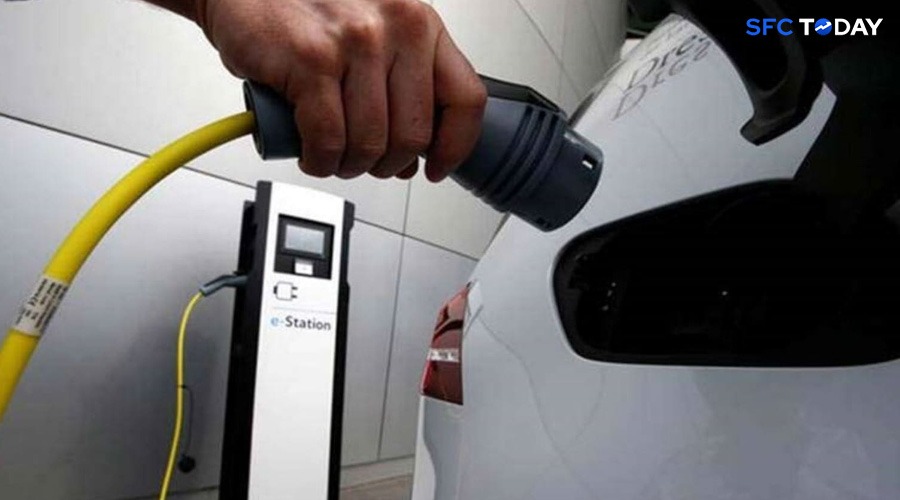Can the world reduce its dependence and keep the EV revolution on track
The global electric vehicle (EV) industry is facing a serious crisis. China, the world’s leading supplier of rare earth magnets, has introduced new restrictions on their export. These magnets are a vital part of electric motors used in EVs, and the sudden change in export rules is causing delays, price increases, and uncertainty throughout the industry.
China’s New Export Rules
In April 2025, China introduced a new system requiring special permits for companies that want to export rare earth magnets. These magnets are made using important elements like neodymium, praseodymium, dysprosium, and terbium. These elements are essential because they allow the magnets to work efficiently in high-performance machines like electric motors, wind turbines, and smartphones.
Under the new system, any company that wants to send these magnets outside China must get official government permission. This means fewer magnets are being shipped internationally, and those that are exported may take longer to reach their destination or cost more.
This move is believed to be part of a larger strategy in response to growing trade tensions with other countries, especially the United States. By limiting the supply of these important materials, China is using its dominant position to influence the global market.
Impact on the EV Industry
The export restrictions have hit the EV industry especially hard. Electric vehicle manufacturers all over the world depend heavily on China for a steady supply of rare earth magnets. These magnets are used in the motors that power electric cars, so any disruption in supply affects production directly.
Major automakers like Tesla, Ford, and Volkswagen have already reported difficulties in getting the materials needed to keep their production lines running smoothly. As a result, there have been production delays, rising costs, and supply chain problems.
Prices for rare earth magnets have started to rise due to the limited availability. This has added pressure on EV companies, many of which are already working with tight profit margins. Consumers may also feel the impact through higher vehicle prices or slower delivery times.
Global Supply Chain Weakness
China has spent decades building up its position as the world’s top producer of rare earth magnets. Today, it controls around 87% of the world’s production capacity for sintered neodymium-iron-boron (NdFeB) magnets, which are the most commonly used magnets in EV motors.
Because so much of the world’s supply comes from one country, the global supply chain is extremely vulnerable to policy changes like this one. When China changes its rules, it affects nearly every EV manufacturer in the world.
Some countries have been trying to reduce their reliance on Chinese rare earths. The United States and Australia have both started projects to mine and process rare earth elements domestically. However, setting up these new operations takes a lot of time, money, and expertise. So far, these efforts have not been able to match China’s output.
What Companies and Governments Are Doing
To deal with the crisis, companies and governments are looking for new ways to reduce their dependence on Chinese magnets.
Some companies are redesigning their electric motors to use fewer rare earth materials or to use alternative types of magnets that are easier to source. Research and development teams are working to find new materials that can do the same job without needing rare earths.
On the government side, several countries have increased funding for mining and processing rare earths at home. The United States, for example, has launched new initiatives to support domestic rare earth mining and magnet production. Other countries are exploring international partnerships to build new supply chains that do not rely so heavily on China.
These efforts are important, but they will take time to produce results. In the short term, the EV industry will likely continue to face shortages and high prices.
Long-Term Effects and the Road Ahead
This situation has revealed just how fragile the global supply chain for rare earth magnets really is. It also shows how much the EV industry relies on these materials to function.
As the demand for electric vehicles continues to grow, especially in the push for cleaner transportation and reduced carbon emissions, the need for stable and affordable supplies of key materials like rare earths becomes even more critical.
If the industry cannot solve this supply problem, it could slow down the transition to electric vehicles. That would be a setback not only for automakers but also for countries trying to meet climate goals.
In the long run, the industry needs to build a more diverse and secure supply chain. That means developing rare earth production in other countries, finding alternatives to rare earths, and designing motors that are less dependent on limited resources. All of this will require global cooperation between governments, industries, and research institutions.
The restrictions placed by China on rare earth magnet exports have created a major challenge for the global electric vehicle industry. With production delays, rising costs, and increasing supply chain risks, EV manufacturers are under pressure to adapt quickly. While efforts are being made to reduce reliance on China and find alternative solutions, the road ahead remains uncertain.
This crisis has shown the need for long-term planning and investment in building a more resilient and diverse supply network. As the world continues its shift toward electric transportation, ensuring a steady and secure supply of critical materials like rare earth magnets will be key to the future success of the EV industry.


